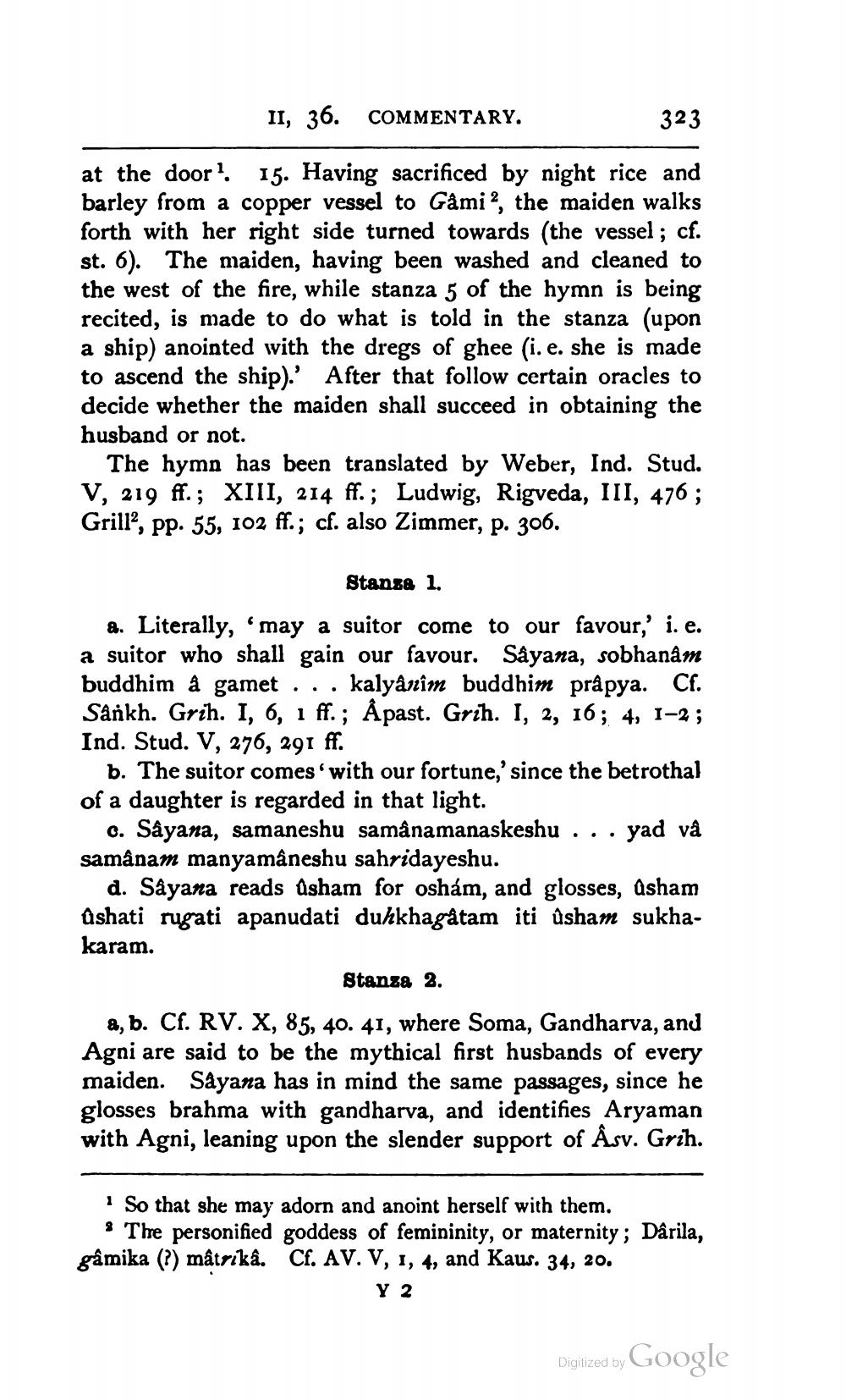________________
II, 36. COMMENTARY.
323
at the door! 15. Having sacrificed by night rice and barley from a copper vessel to Gâmi?, the maiden walks forth with her right side turned towards (the vessel ; cf. st. 6). The maiden, having been washed and cleaned to the west of the fire, while stanza 5 of the hymn is being recited, is made to do what is told in the stanza (upon a ship) anointed with the dregs of ghee (i.e. she is made to ascend the ship). After that follow certain oracles to decide whether the maiden shall succeed in obtaining the husband or not.
The hymn has been translated by Weber, Ind. Stud. V, 219 ff.; XIII, 214 ff.; Ludwig, Rigveda, III, 476 ; Grill, pp. 55, 102 ff.; cf. also Zimmer, p. 306.
Stansa 1.
8. Literally, 'may a suitor come to our favour,' i. e. a suitor who shall gain our favour. Såyana, sobhanam buddhim à gamet ... kalyanim buddhim prâpya. Cf. Sankh. Grih. I, 6, 1 ff.; Åpast. Grih. I, 2, 16; 4, 1-2; Ind. Stud. V, 276, 291 ff.
b. The suitor comes with our fortune,' since the betrothal of a daughter is regarded in that light.
a. Sayama, samaneshu samanamanaskeshu ... yad và samânam manyamâneshu sahridayeshu.
d. Såyana reads usham for oshám, and glosses, asham Ushati rugati apanudati duhkhagåtam iti üsham sukhakaram.
Stanza 2. a, b. Cf. RV. X, 85, 40. 41, where Soma, Gandharva, and Agni are said to be the mythical first husbands of every maiden. Sayana has in mind the same passages, since he glosses brahma with gandharva, and identifies Aryaman with Agni, leaning upon the slender support of Åsv. Grih.
So that she may adorn and anoint herself with them. * The personified goddess of femininity, or maternity; Dârila, gâmika (?) måtrika. Cf. AV. V, 1, 4, and Kaus. 34, 20.
Y 2
Digitized by
Digjized by Google




